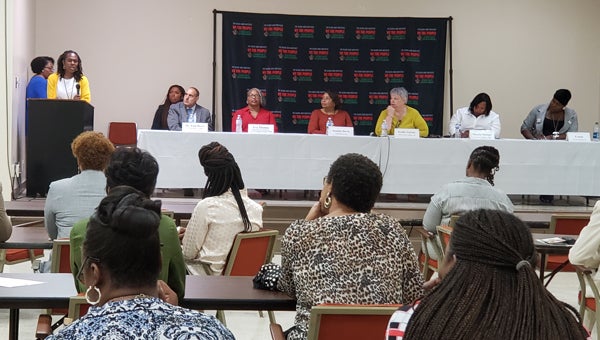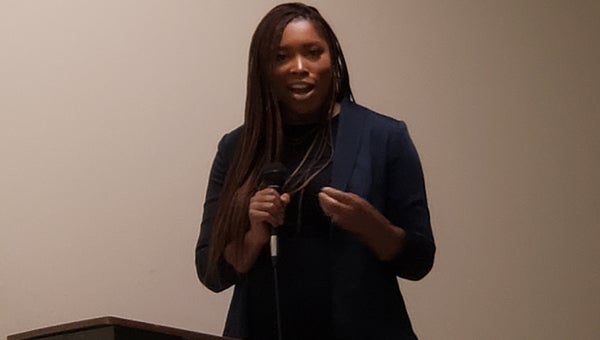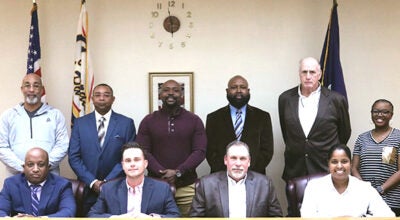HIV epidemic topic of forum
Published 12:01 am Friday, October 11, 2019
NATCHEZ — The national Black AIDS Institute in partnership with the Mississippi State Department of Health hosted a town hall meeting at Alcorn State University’s Natchez campus Thursday evening to discuss strategies to end the HIV epidemic across America.
Representatives from MSDH and BAI as well as Natalie Cooley of the Louisiana Department of Health, Juanita Davis of Care4Me Services, Kathy Garner of the AIDS Services Coalition, Mauda Monger of My Brother’s Keeper and Evonne Kaho of Love Me Unlimited led a panel discussion about HIV and answered questions from attendees.
The group also received a warm welcome from Natchez Mayor Darryl Grennell who also listened to Thursday’s panel discussion.
“It is very important and very critical that we continue to make awareness of not only HIV or AIDS, but other sexually transmitted diseases that are out there,” Grennell said. “… I am so thankful that we are having this discussion in this community because it is important.”
The goal of the BAI is to spread education, services and ultimately put a stop to the spread of disease, said BAI President and CEO Raniyah Copeland of Los Angeles, California. Copeland said the organization intentionally takes its name from the race where HIV is statistically more prevalent. According to msdh.ms.gov, 275 of 375 HIV cases recorded in 2018 were among African American males.
“All of our work is done uniquely and an unapologetically from a black point of view,” Copeland said. “Our motto speaks to our mission, which is ‘Our people, our problem, our solution.’ … HIV doesn’t happen in a vacuum. Black people don’t have more sex than other people. Black people don’t use more drugs than other people. It’s really about who we are, where we live, how we love, being in smaller communities and all of these other things that impact us.”
The conversation about HIV was not limited to the African American community, however, as panelists addressed the audience to generate ideas that would encourage more people of different age groups, races and sexualities to join the discussion.
Paul Byers, Epidemiologist with MSDH, said the science and tools needed to end the HIV epidemic have existed for more than a decade, still the problem persists. Byers said the keys to stopping the virus from spreading are to test, treat, educate and prevent.
“HIV is not a new disease,” Byers said. “We know the science. We know that treatment is prevention. We know that individuals need to be tested and screened. We know that we have drugs available to prevent those with the highest risk from ever even developing HIV. We’ve moved … but we haven’t moved a whole lot. We still have hundreds of new cases identified in Mississippi every year.”







